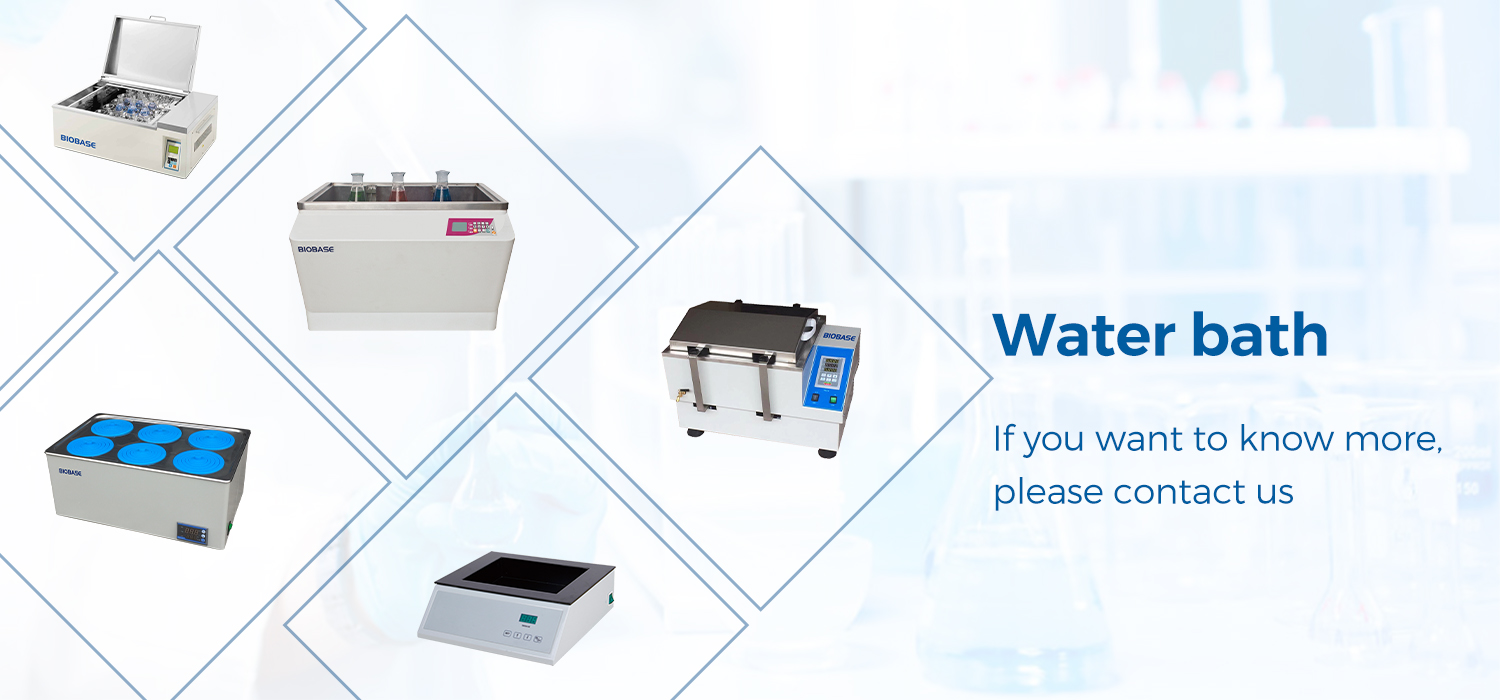What is a Laboratory Water Bath?
A Laboratory Water Bath, also known as a Serology Water Bath, is a container filled with heated water that is used to incubate samples at a constant temperature for long periods. A Laboratory Water Bath is most commonly used during incubation in microbiological laboratory work because water can retain heat so well, but can also enable chemical reactions to occur once the water reaches a certain temperature.
A Laboratory Water Bath is generally used when the required temperature is below 100°C. For higher temperatures, alternative methods such as oil baths, silicone baths or sand baths should be used.

How does a Laboratory Water Bath Work?
The user can control the temperature of a Serology Laboratory Water Bath by using a digital or analogue interface. A light will usually indicate that the water bath is working, and once the correct temperature has been reached the water bath will turn on and off to maintain the constant temperature. Certain Laboratory Water Baths have a safety setting preventing the water from heating to a higher temperature.
Different types of Laboratory Water Baths also exist, for example shaking water baths, which are used to mix substances together and have additional controls allowing users to control the speed and frequency of movements. Laboratory Water Baths do not have to contain water and can use alternate fluids such as oil depending on the required temperature and viscosity.

Laboratory Water Baths are used in industrial clinical laboratories, academic facilities, government research laboratories environmental applications as well as food technology and wastewater plants.
Laboratory Water Baths are most widely used for many bacteriological applications that require incubation, as well as general tests and procedures. This is done through the warming of reagents, melting of substrates or incubation of cell cultures. Furthermore, Laboratory Water Baths can be used to enable certain chemical reactions to occur at high temperatures.
Laboratory Water Bath uses include tissue culture applications, enzyme reaction studies, growth observation studies, coliform determinations and fermentation analysis. Water baths are the preferred heat sources for the heating of flammable chemicals, because they do not have an open flame which prevents ignition.
Laboratory Water Bath Considerations
There are many things to consider when choosing the right serology water bath for your laboratory.
The first consideration is the type of interface, as digital systems provide greater temperature uniformity and control which is more suited to constant temperature requirements. Analogue systems however offer easy-to-use control and are best suited to fixed set-point applications.
The next factor is the temperature requirement, as most laboratory water baths provide temperatures between + 5°C to 99.9°C, with temperature uniformity of ± 0.2°C at 37°C. They may also offer temperature pre-set functions, allowing the quick selection of frequently used set temperature points.
Capacity of the Laboratory Water Bath is also important, as choosing the right size for your Water Bath depends on the volume and size of samples you are working with. Serological Water Baths typically range from 1.5 to 43 litres, and it is best to compare internal tank dimensions when deciding.
Further considerations relate to potential concern regarding contaminants, which may require a water bath cover that can eliminate problems with condensation and main temperature if the lab is operating the water bath above 60°C. In addition, safety features may be necessary such as an alarm indicators or secondary thermostat that automatic
